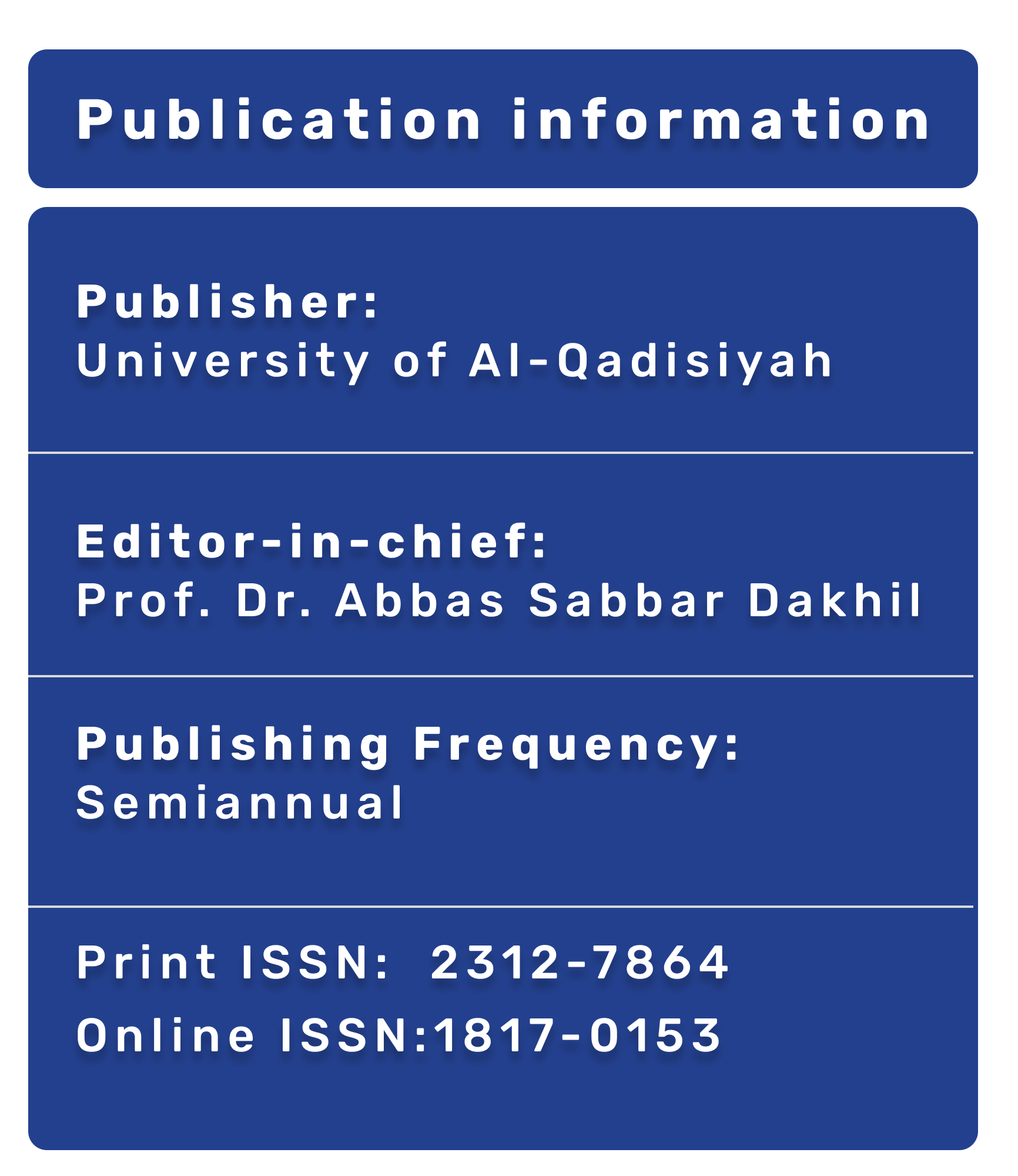Most read articles by the same author(s)
- Imad Hasan Sagir, Thair Wali Ali, Sheimaa Abd Alhamza Borhan, Role of the Triple Test in the Evaluation of Breast Mass , AL-QADISIYAH MEDICAL JOURNAL : Vol. 13 No. 23 (2017)
- Ali Hassan Ali Murad, Thair Wali Ali, Aws Rassul Hussain Al-Salih,, The role of Laminin111 and Matrix metalloproteinase-2 Immunohistochemistry Expression in Prediction of Laryngeal Squamous Cell Carcinoma Prognosis , AL-QADISIYAH MEDICAL JOURNAL : Vol. 13 No. 23 (2017)
- Raad Jawad Kadhim Al-Shaibany, Thair Wali Ali, Musculoskeletal biopsy (Bone and soft tissue lesions) referred by orthopedic unit in Al-Diwaniyiah teaching hospital , AL-QADISIYAH MEDICAL JOURNAL : Vol. 12 No. 21 (2016)
- Thair Wali Ali, The value of rapid semi-automated morphometric analysis system in predicting malignancy in thyroid follicular neoplasm , AL-QADISIYAH MEDICAL JOURNAL : Vol. 13 No. 24 (2017)








